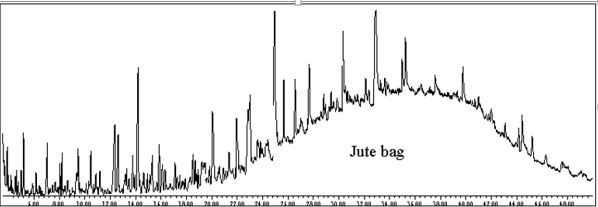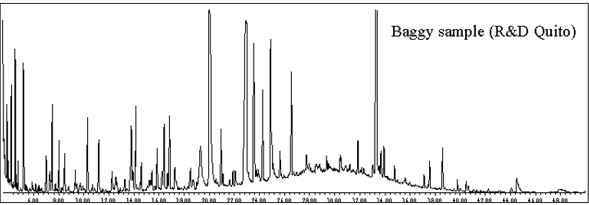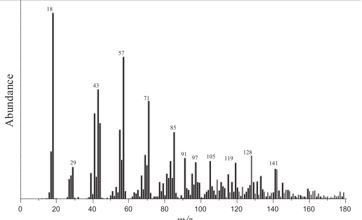Origin of Some Coffee Defects – «Baggy»
 The jute bag is one of the most important way to transport coffee between producing and roasting countries. These bags are mainly produced in Asia (India, Indonesia) and Africa. From the early days, producers used hydrocarbon oils (Jute Batching Oil or JBO) to soften the jute fibers. Today, a few companies have developed hydrocarbon free jute bags. They use Rice Bran Oil (RBO) and the producers of these bags claim that less contamination occurs with RBO compared to JBO.
The jute bag is one of the most important way to transport coffee between producing and roasting countries. These bags are mainly produced in Asia (India, Indonesia) and Africa. From the early days, producers used hydrocarbon oils (Jute Batching Oil or JBO) to soften the jute fibers. Today, a few companies have developed hydrocarbon free jute bags. They use Rice Bran Oil (RBO) and the producers of these bags claim that less contamination occurs with RBO compared to JBO.
Green coffee beans contain up to 15% lipids. Volatile organic compounds such as flavor or odorant molecules are most of the time lipophilic, therefore, they tend to be absorbed by lipids. In the case of “baggy” off-flavour, the presence of hydrocarbons is strongly correlated to this “baggy” defect. It can be easily confirmed using Gas Chromatography (see chromatograms below).
“Baggy” off-flavours can also be described as “oily”, “rancid”, “chemical-oil”, “old bag” and “cardboard”.
Green Coffee Reference:

In reference to the sample of green coffee beans, the baseline is very straight and no mass spectra indicates the presence of any hydrocarbon in the sample.
Jute Bag:

The hump in the chromatogram is characteristic of hydrocarbon contamination. The mass spectra under the hump show the presence of hydrocarbons in jute bag.
Green coffee with “baggy” defect:

In the chromatogram for green coffee that has the “baggy” defect, a small hump is visible. Under this hump, characteristic mass spectra shows the presence of hydrocarbons in green coffee beans.
Typical hydrocarbon mass-spectra

Hydrocarbons or paraffin have the possibility to migrate into green coffee beans and contaminate the product. It can happen when too much paraffin is used or too much heat is present (speed up the migration). In order to limit this defect, several solutions exist:
- Use of GrainPro or other type of protective bags
- Use of Big Bags
- Use of metallic container
The use of jute bags allows countries such as India, Indonesia, Bangladesh to earn significant revenues, therefore it is recommended as fair business to continue using jute bags for the coffee industry.



